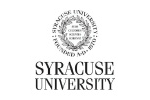
EXCLUSIVE WEBINAR “Venice, Superstar City of the Shakespearean Stage”
Presented by Dr. Eric Nicholson
With Additional Commentary by Dr. Rocky Ruggiero
Date & Time:
Thursday, June 8, 2023
2:00 – 3:00pm ET | 11:00am – 12:00pm PT |
7:00 – 8:00pm London
EXCLUSIVE WEBINAR | “Venice, Superstar City of the Shakespearean Stage”
Presented by Dr. Eric Nicholson
With Additional Commentary by Dr. Rocky Ruggiero
What gave the unique city of Venice an almost irresistible allure for early modern English people, and made it a dynamic setting for outstanding plays by Shakespeare and his contemporaries? This is a key question of this special webinar, also a preview of my three-part seminar on “Venice, Superstar City of the Shakespearean Stage” to be offered in October.“Superstar” is an appropriate tile, as is “Diva,” since in its historical “theatre of the world” Venice played a leading role, with its complex blend of the real and the imaginary, of natural-artistic beauty and grace with potential moral and physical corruption. It was not only Europe’s most cosmopolitan city, but also its favorite playground, in every sense. Leading English playwrights like William Shakespeare and Ben Jonson could count on their audiences’ desire to glimpse versions of the Reality and Myth of Venice acted out on London stages.
In The Merchant of Venice, the play’s leading lady Portia, cross-dressed as the legal expert Balthazar, asks “Which is the merchant here, and which the Jew?”, soon after she/”he” arrives at the courtroom presided over by the Doge of Venice himself. Her question implies that the play’s title character Antonio and his opponent Shylock are as similar as they are different. ndeed, their similarities in many ways derive from the famously Venetian maschera, or character type, of the “commedia dell’arte” Pantalone. At the same time, Portia and her trusted accomplice Nerissa, along with the other cross-dressing and self-transforming female character Jessica, also have strong links to Italian role models, and in many ways represent Venice herself. In Shakespeare’s next Venetian play, The Tragedy of Othello, the Moor of Venice, the mask of Pantalone returns as the senator Brabantio, father of the bold and charismatic Desdemona. Unlike her Prima Donna counterpart Portia, this much-desired heiress does not disparage a suitor from North Africa but instead falls in love and elopes with him. Her fascination, identification, and love affair with an outsider resemble the thoughts and feelings that Londoners often had for Venice, as seen in Ben Jonson’s brilliantly funny comedy Volpone, or the Fox, set in a sumptuous Venetian palazzo. Here the title character, as much for fun as for profit, pretends to be dying and ready to choose his heir among a pack of gift-giving but self-interested, scavenging, and insatiably greedy Venetians. Several English characters, early practitioners of the Grand Tour of Italy, also enter the scene, which changes to an “obscure nook” of the Piazza San Marco. Intriguing encounters and complications ensue, as Jonson takes us on a rollicking imaginary trip through Venice’s houses, courts, streets, piazzas, and canals, filled with twists, turns, and an exciting climax that enables audiences to think deeply while also laughing heartily.
Thus the webinar will introduce you to how the superstar city of Venice, as portrayed on the Globe stage, could and still can be strangely familiar, a fantasy island filled with fun facts, and a complex dramatic mirror of modern personal identities and social relationships.
The webinar will include a 45-minute performance/lecture followed by 15-minutes of Q&A.
Please note:
For the past twenty years, Eric Nicholson (Ph.D., Yale University) has been teaching courses in literature and theatre studies at Syracuse University Florence, and at New York University, Florence. At both these venues and elsewhere, he has also directed numerous productions of classic plays, among them Shakespeare’s A Midsummer Night’s Dream, Much Ado About Nothing, and The Tempest. Beyond lecturing, directing, and publishing widely in his field, Eric’s professional activity extends to acting, voice work, and public presentation: credits include Oberon in the Maggio Musicale Fiorentino production of Purcell’s Fairy Queen (Teatro Goldoni Florence, 2013), and Fool/Theseus in “Promised Endings: an Experimental Work-in-Progress based on Oedipus at Colonus and King Lear” (Verona, 2018). He is the narrator of the English video documentary for the Museo dell’Opera del Duomo, Firenze, and of English audio guides to museums in the Tuscan cities of Grosseto, and Massa Marittima. In full historical costume, he has appeared as Lorenzo the Magnificent, Leonardo da Vinci, and others in several live performance events, videos, and broadcasts, and most recently (2021) as Dante and Boccaccio for Making Art and History Come to Life. This past June, Eric led the Making Art and History Comed to Life seminar on “Shakespearean Comedy, Italian Style.”













